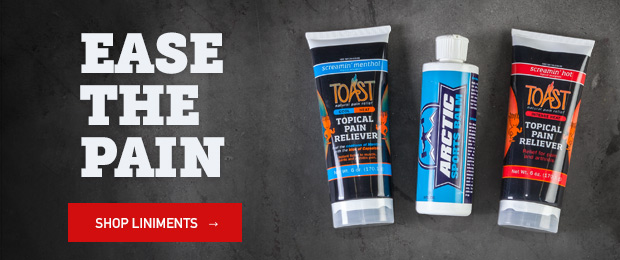
As the old saying goes, there are two types of strength coaches: One, those who are looking for work; and two, those who are about to be looking for work. Not such an optimistic approach to begin this article, but unfortunately, it’s a very real situation that you will find yourself in at some stage in your career. It is certainly a case of if, not when, but more importantly, are you ready for it? What will you do when it happens?
As I am currently in Category One of the above, I thought it an opportune time to reflect on the situation and hopefully assist in the process of getting you your next gig.
RECENT: Ocham's Razor and the Pareto Principle in Weight Training Programming
I resigned from my last position, so I had some time to consider my actions and to try and position myself for a quick transition. Timing is everything in this industry, and knowing the dates of the seasonal “firing and hiring” game of musical chairs is essential to be ready.
This, as the maxims of the samurai go, is the time to sharpen the sword. So what are you doing in order to be better and sharper for the next job when it presents itself? For me, it was a case of doing the following:
- Expand and review skills. I did that with what I already knew. I joined the Westside Barbell Conjugate Club and have studied up via video and podcast and the written articles all the information that Louie Simmons puts out there. Take short courses such as conflict resolution. What does your local community college or job center have available? I need to improve my Excel skills, so that is what I am looking to do.
- Visit different programs and organizations. See what they are doing differently than what you have done in the past. How are they better? Are they doing anything different to you? How do the coaches interact with the players and other staff? It is not just about the sets and reps; the psychology of coaching is so very important in keeping players inspired to perform. Do check out Brett Bartholomew’s website in regards to conscious coaching.
- Look at online courses. I looked at the Professional Football Strength and Conditioning Coaches Association’s injury resiliency course, sponsored by the NSCA. Also, go to as many opportunities to improve your skills that are available in your area. I attended the PLAE Lab in Sydney, as it was close to where I live, and it was an amazing event and very well organized. I re-affirmed a few ideas and learned a lot of new concepts to apply. The NSCA has certification courses (such as the Foundation of Coaching Lifts), clinics, and the national conference in July. There is also The Strong(er) Sports Training Success Summit, which takes place at the elitefts compound in London, Ohio, from Friday, April 26th to Sunday, April 28th, 2019. If I were in the area, I would ensure I was there.
- Reach out to people in your network. I sent a group email to my network of colleagues to see if they could keep an eye out for anything that they thought may be suitable for me to apply for. Not just coaching but guest lectures, podcasts, video interviews, and volunteering opportunities. I am giving a seminar on programming for the gym I train at, Fitness Canterbury and half of the proceeds are going to the wonderful Make-A-Wish Foundation.
- Check job postings. I check the online job boards at the NSCA, UKSCA, the ASCA, and Mladen Jovanavich’s complementarytraining.com for the latest jobs, as well as the general job search engines such as: Indeed, Seek, Jora, Simply Hired, Sportspeople, GlobalSportsJobs, Glassdoor, LinkedIn, Facebook, and Twitter.
- Find an agent. If you are looking overseas, especially if it is a non-English speaking environment, get yourself an agent who can navigate through the environment and assist in all facets of the employment process.
As I have written and spoken about previously, we are process-driven and outcome-judged in this industry. No matter how well you do your job, you may find yourself out of a job.
RELATED: Live and Coach Your Why

liravega258 © 123rf.com
So let’s get you your next job. I recently spoke with my colleague Simon Price at the Samoan Rugby Union, who had to work through over 125 resumes to select five applicants to interview in order to fill two intern positions. I think we went through close to 125 of the same resume with a different name and contact details on the top of each. This leads me to consider the following:
- What is your point of difference, and how are you going to catch the attention of the person wading through numerous resumes? What do you stand for?
- The longer I am in this industry, I am more taken by the why you want to do it and who you are rather than what you have done. As Kevin Costner says in my favorite film Draft Day when he’s asked about why he passed on a particular player, “It’s a character thing for me.” Who you know may get you an interview, but who you are is the reason I am going to give you the job.
- If you do not grab me in the first paragraph, it is more than likely you will be in the discard file. It does not have to be a try-hard attempt, but a sincere rationale of who you are and what you stand for is more than likely going to get my attention. I have been told recently that there were 5,000 graduates from a sports-related degree in the UK and Ireland last year alone, and there certainly were not 5,000 new jobs available.
- Keep your resume to one to two pages long and keep it relevant to the job you are applying for. No one wants to read a novel of irrelevant aspects of your life. Keep it concise and precise, highlight your key achievements, recent job history, and qualifications, and briefly summarize your training philosophy.
- If the position asks for anything specific, ensure you provide it; you would be amazed at the number of resumes that came without a cover letter.
- In regards to the cover letter, personalize it. Do some research and find out who the head of HR is rather than just address it to the HR Manager. I have done this very poorly in the past and believe that it has hurt my chances in some applications that I have put forward.
- Use spell check and grammar correct. Ensure you have the correct spelling of the person’s name in the cover letter’s address. Nothing kills an application more than in the cover letter saying that you “have an attention to detail” and then you misspell words in the letter. It is clear that you do not have an attention to detail.
This is the rejection letter that we made sure each applicant received as a feedback opportunity for them to assist in their future applications (Simon Price put it together):
Thank you for your application for the Samoa Rugby Union Strength and Conditioning Internship. We were overwhelmed with the number of quality applicants that were prepared to move to Samoa for an intern position. Unfortunately, on this occasion, your application has been unsuccessful. Please don’t be disheartened by this, use it as motivation to continue to work harder towards your future career goals.
Below are some keys points why an application may have not been successful, all feedback points may not be referring to your application, this is a feedback summary. From an employer’s point of view, this is your first introduction and in a competitive industry first impressions count, you need a point of difference and an excellent cover letter and CV certainly helps.
Formatting
- Be sure to correctly read the advertisement and address the application to the correct person.
- Learn how to format a professional business letter, including spacing, dates, and correct wording.
- Use formal introductions when addressing the application in your cover letter and introduction email; try to use names when provided. “Hello” and “Hi" are not appropriate.
- Don’t send your CV in Word format; change it to a PDF file.
Combine both documents into one file. There are free websites that allow PDFs to be combined and downloaded, such as pdfmerge.com.
- Spell check, spell check, spell check. Then have someone else read your application.
Curriculum Vitae
- Make sure the CV is clear and easy to read. Don’t include long paragraphs. Bullet point summaries are easier to read.
- When applying for an internship, submitting a 5-page CV isn’t appropriate; I would recommend a 2- to 3-page document. Only include information that is appropriate to the position.
- Be sure to include essential information, contact details, qualifications, and current and previous work relevant experience.
General Comments
- This industry is extremely competitive and we understand that showing initiative and being confident are traits that go along way, but, be cautioned not to sound arrogant. Asking for a Skype chat to “Discuss how you could help me” before even applying is extremely presumptuous and will leave a sour first impression.
Please don’t take this information to heart; we are merely trying to offer constructive feedback to assist you with future applications. Personally, I’ve lost count on how many times I’ve been rejected by this industry, but I kept persisting and vowed I would always provide feedback to unsuccessful applicants because I never did.
Once again, thank you for taking the time to submit your application and good luck with your career.
Kind Regards,
In regards to the above letter, we received positive feedback from many of the unsuccessful applicants stating that this was the first time that they had received any feedback from job applications.
READ MORE: How to Get In and Stay In
There will be times when you question yourself and if you are cut out to do this job anymore. It is extremely important to ensure you have a good support network in place. Friends and family are vital at this time in your life when your professional self has taken a massive knock, and you may well be out of equilibrium for a while. Your network can help you quickly get back on an even track and moving forward.
Reflect on what you could have done better in your role. Was your dismissal the result of a change in coaching staff? Or was there something that you were doing that caused people to want you gone? This is a wonderful time to review your personal philosophy of training and discuss with colleagues and compare the way they approach issues that arise in the day to day of coaching.
Keep training. Do not let how you are feeling get in the way of your training sessions and keep getting “under the bar.” I find that I do some of my best thinking when I am in the gym, and I always have a notebook with me to record random thoughts, words, phrases, and ideas that come into my mind as I am working.
There will certainly be days where you will want to withdraw from the world; use this time to get your thoughts down on paper. I have certainly been in some dark places already since my new job hunt has started, but thankfully the gym is always there, never judgmental, and ready to accept me as I am.
I have found that it is not the loss of earnings that is the biggest issue; it is the fact that I do not have a reason to get out of bed. I no longer have a place to go where I can make a difference and be a part of something bigger than myself and contribute to a performance environment. It is a warning in advance of retirement to ensure that this is not a recurring theme when that time comes.
Seek professional help if you feel yourself not being yourself, if your partner tells you that you have changed for the worse, or you if feel that your self-esteem and self-worth are deteriorating. I have talked through issues with a psychologist, and it has certainly kept me positive as I continue the search.
You are not alone. Reach out to me or others, and we can all be better for the experience. It is getting harder every year, but we need to keep moving forward. As Dylan Thomas extols, “Do not go gentle into that good night… Rage, rage against the dying of the light.”
If you or a loved one needs help, reach out to these resources. All hotlines listed below are available 24/7 and are confidential unless otherwise noted. In case of an emergency, call your local authorities.
- The National Suicide Prevention Lifeline (US): 1-800-273-8255
- Crisis Text Line (US): Text "START" to 741741
- TWLOHA (US): Text "TWLOHA" to 741741
- Free online chat-counseling and therapy from trained volunteers (international): 7cups.com
- International lists of suicide hotlines and resources: suicide.org/international-
suicide-hotlines.html and twlo ha.com/find-help/ international-resources











Thanks again
Rob
Fantastic article. Open, honest and full of great advice.
You talk of reaching out to you. What's your best contact details?
There are definitely a number of useful points that I will be taking heed of and putting into action.
Cheers,
Jono